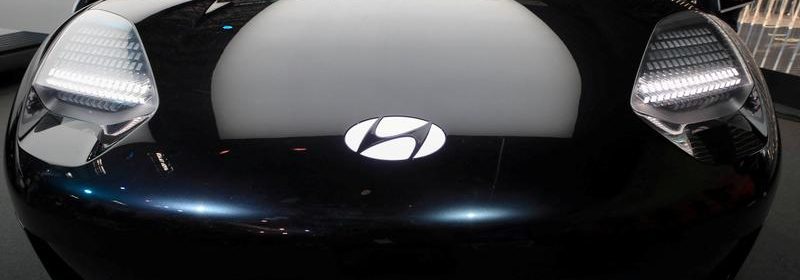Analysis-New U.S. rules on EV subsidies slam Hyundai, Kia's dreams

SEOUL/DETROIT (Reuters) – After grabbing the No. 2 spot in the U.S. electric vehicle market with stylish, long-range models, Hyundai Motor and Kia are the automakers with the most to lose from new rules that halt subsidies for EVs made outside North America.
These two companies, which make the popular Ioniq 5 and EV6 models, sold more than 39,000 EVs in the United States between January and July – doubling last year’s sales and blowing past Ford Motor Co, Volkswagen AG and General Motors Co.
But the Inflation Reduction Act signed into law by U.S. President Joe Biden last month excludes Hyundai Motor Co and its affiliate Kia Corp from federal tax credits because they don’t yet make EVs in North America, knocking their EV ambitions in the short term at least, a Hyundai official, parts suppliers, analysts and car dealers said.
Only about 20 EVs qualify for subsidies under the new rules, among them models from Ford and BMW, and starting next year, GM and Tesla Inc. The rules also specify requirements for EV battery materials and parts sourcing from 2023.
Other foreign carmakers such as Toyota Motor Corp which will also be affected by the law have less at stake because they offer fewer models or command less market share.
“If all things are equal and if I buy this one I get a $7,500 tax credit and if I buy that one I don’t, I love you Hyundai but I’m going to go with the one where I can get a tax credit,” said Andrew DiFeo, a Florida-based dealer who has seen a few potential customers already drop Hyundai EVs as a preference.
Graphic: Battery-powered U.S. EV sales –
Hyundai Motor Group, which announced over $10 billion in U.S. investments some three months back including a $5.5 billion EV plant in Georgia, is not pleased.
Biden had thanked Hyundai for the investments in May: “Thank you again for choosing the United States. We will not let you down.”
An official at a large Hyundai supplier who has spoken to senior officials at the company told Reuters that the automaker was caught off guard by the law.
“So much for not letting us down,” said the person, who spoke on condition of anonymity. “It’s a big mess.”
South Korean officials met U.S. counterparts this week to express concerns, and the Financial Times reported that Hyundai Motor Group Chairman Euisun Chung headed to Washington too last week.
A senior government official said on Tuesday Seoul has asked Washington to postpone the new rules until the completion of the Georgia factory in 2025. South Korea has said the new law may violate treaties such as the U.S.-South Korea free trade agreement.
“Our U.S. EV factory plan was to get subsidies in light of the growing EV market in the United States … the new law negatively and directly affects us,” said a company official who declined to be identified because they are not authorised to speak to media.
AMERICAN MADE
While the auto group is considering bringing forward the construction start of the factory to as early as this year, analysts still expect a drop in sales due to a loss of momentum.
Analysts said it was too early yet to quantify how much the new rules will cost the companies in revenue and profit, but several said they would likely use incentives to attract American shoppers, a move that could push up costs.
After Biden signed the Act on Aug. 16, shares in Hyundai and Kia fell some 4% each. They have since recovered.
“We are internally considering diverse ways to cope with the Act,” Hyundai Motor Group said in a statement to Reuters.
While Hyundai and Kia’s American EV sales added up to just over a tenth of Tesla’s volumes and roughly 9% of the U.S. market share, they suggested that the companies were on their way to cement their position as a top EV player in the country.
Hyundai will launch it first EV sedan Ioniq 6 early next year in the United States, a car that analysts had expected could compete with Tesla in the U.S. market because of its pricing.
Kia has not confirmed plans for a U.S. launch of the EV9, an SUV much bigger than the EV6, though analysts expected it to be a hit with American consumers who prefer big cars. Seoul-based Daol Investment & Securities analyst Yoo Ji-woong said Kia would likely consider making the EV9 in the United States to get subsidies.
Yoo is sanguine that all automakers will ultimately benefit.
“It may take a few years, but eventually the law will help make electric cars more affordable.”
Source: Read Full Article
